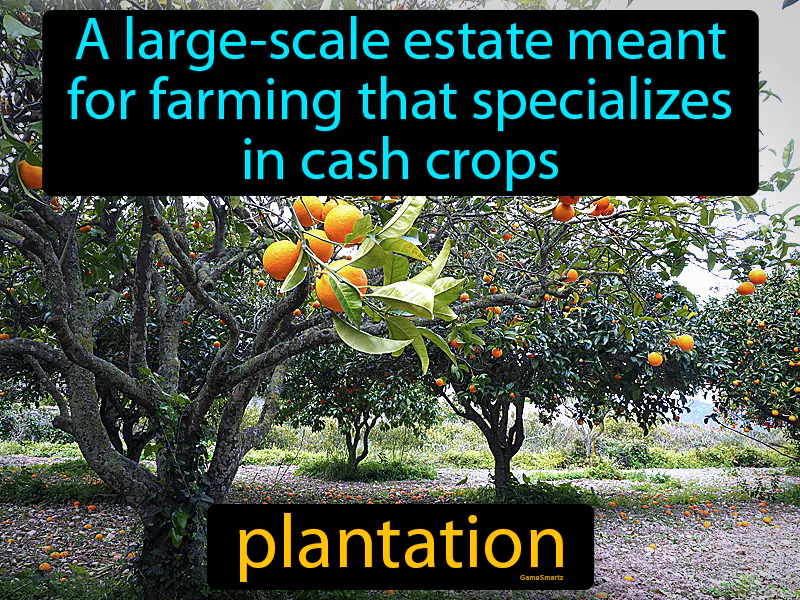Plantation
Plantation:
During the Global Age from 1415 to 1795, plantations were crucial for producing cash crops like sugar, tobacco, and cotton, which were in high demand in Europe. These large estates relied heavily on the labor of enslaved people, primarily brought from Africa, making them central to the transatlantic slave trade. Plantations represented both economic prosperity for landowners and immense suffering for the enslaved, highlighting the deep inequalities of the time. Today, the legacy of plantations is seen in ongoing discussions about racial inequality and economic disparity. For example, fair trade movements strive to ensure ethical practices in farming, reflecting a modern desire to address the injustices rooted in plantation history.

Practice Version

Plantation: A large-scale estate meant for farming that specializes in cash crops. Plantation. Plantations were large farms that relied on enslaved labor to produce crops like cotton, tobacco, and sugar, especially during the colonial period.
